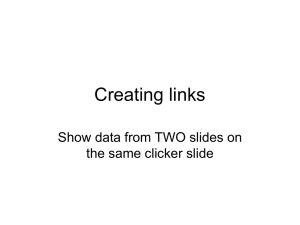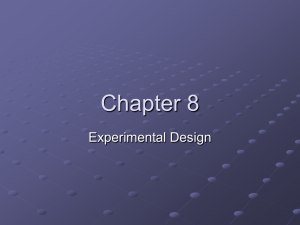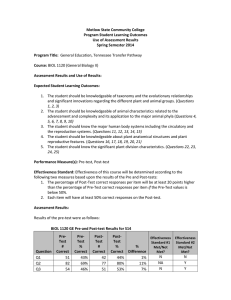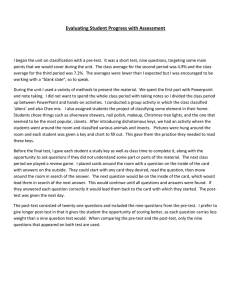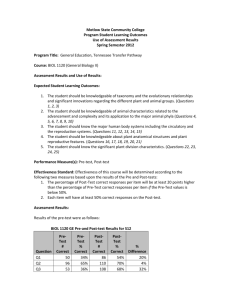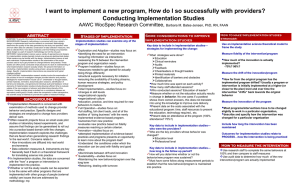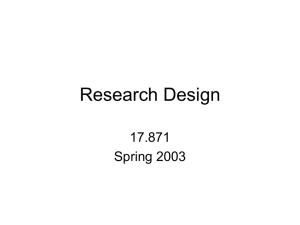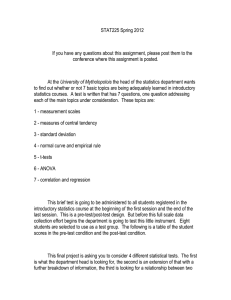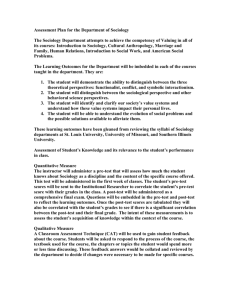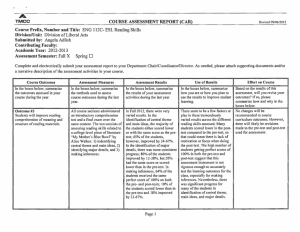General Recommendations for Facilitators
advertisement
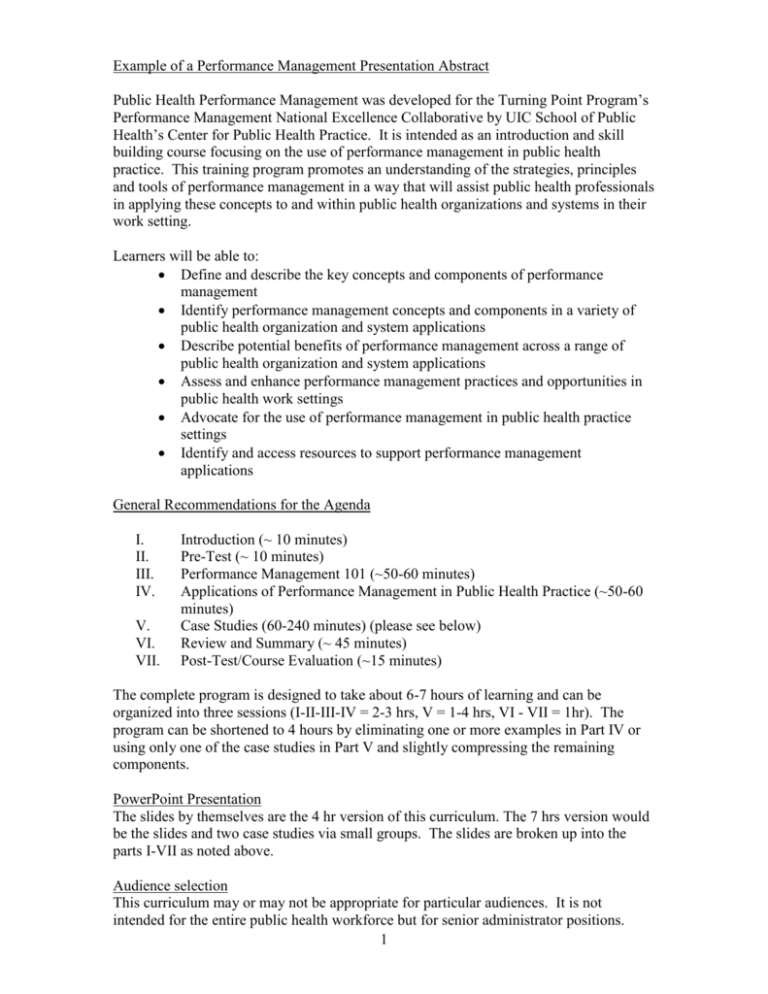
Example of a Performance Management Presentation Abstract Public Health Performance Management was developed for the Turning Point Program’s Performance Management National Excellence Collaborative by UIC School of Public Health’s Center for Public Health Practice. It is intended as an introduction and skill building course focusing on the use of performance management in public health practice. This training program promotes an understanding of the strategies, principles and tools of performance management in a way that will assist public health professionals in applying these concepts to and within public health organizations and systems in their work setting. Learners will be able to: Define and describe the key concepts and components of performance management Identify performance management concepts and components in a variety of public health organization and system applications Describe potential benefits of performance management across a range of public health organization and system applications Assess and enhance performance management practices and opportunities in public health work settings Advocate for the use of performance management in public health practice settings Identify and access resources to support performance management applications General Recommendations for the Agenda I. II. III. IV. V. VI. VII. Introduction (~ 10 minutes) Pre-Test (~ 10 minutes) Performance Management 101 (~50-60 minutes) Applications of Performance Management in Public Health Practice (~50-60 minutes) Case Studies (60-240 minutes) (please see below) Review and Summary (~ 45 minutes) Post-Test/Course Evaluation (~15 minutes) The complete program is designed to take about 6-7 hours of learning and can be organized into three sessions (I-II-III-IV = 2-3 hrs, V = 1-4 hrs, VI - VII = 1hr). The program can be shortened to 4 hours by eliminating one or more examples in Part IV or using only one of the case studies in Part V and slightly compressing the remaining components. PowerPoint Presentation The slides by themselves are the 4 hr version of this curriculum. The 7 hrs version would be the slides and two case studies via small groups. The slides are broken up into the parts I-VII as noted above. Audience selection This curriculum may or may not be appropriate for particular audiences. It is not intended for the entire public health workforce but for senior administrator positions. 1 This is important to keep in mind when framing and designing which pieces of this curriculum will be used for a specific session. Pre-Test, Post-test and Course Evaluation A pre-test and post-test have been created in order to assess both the participants baseline knowledge and then changes in knowledge, attitudes and behavior. These can be given out at the beginning of the curriculum and then after the review and summary section, if desired. Participants can be given 10-15 minutes to complete them. A course evaluation has also been designed to be given out to participants. Case Studies – Part V One or more case studies can be examined in varying degrees of depth, depending on available time and on the size and composition of the audience. There have been five case studies designed for this curriculum, although it is possible that several more could be developed for even greater flexibility in tailoring the program to different audiences. They range in both difficulty and what components of the performance management system are incorporated and which are missing although all involve both state and local public health agencies. As a facilitator, choose a case study that reflects the audiences experience when planning out the curriculum for the day. For a more in depth discussion it may be desirable to breakout into smaller groups of 1015 people and allow the participants to read through and answer/discuss the case study and corresponding questions. Another option is to utilize the slides in the PowerPoint presentation that correspond with the case studies. These slides only summarize two case studies and could be used in a plenary four hour session. With this option the participants will not have the full case study in front of them and therefore, a group discussion could be held. The questions and answers at the end of each case study have been intended for participants to gain a better understanding of the performance management components as well as continue to master and identify them. These basic set of questions can be applied to the case study in 60-75 minutes. A more extensive set of questions, derived from an accompanying self-assessment tool, can be applied in a session lasting 120 minutes or longer. These questions in particular help the participants begin to see how they may or may not be using the performance management system within their workplace. Packet of Materials for Workshop Participants There are a number of Performance Management Resources listed at the end of the PowerPoint presentation. Some of them can be handed out to participants at the actual sessions (e.g. From Silos to Systems: Using Performance Management to Improve the Public’s Health). Additionally, it may or may not be useful to provide participants with the Performance Management Self-Assessment tool. 2
